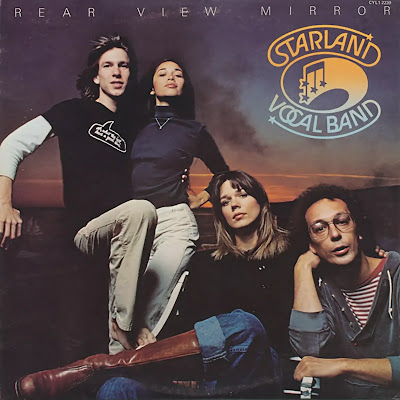 |
| I didn't mention the sci-fi theme? |
I was listening to a podcast the other day - You’re Wrong About, Disco Demolition Night (August 2020) - that framed that dumb, destructive (racist, homophobic) night by talking about disco music and how it came about. Keeping people dancing was one major inspiration - which meant ditching pop music’s plus-or-minus-three-minute time limit, because who wants a three-minute party?
Marc Cerrone - just Cerrone on stage - embraced that format/argument by filling the A-side of his debut album with just one song, “Love in C Minor.” Despite (or because) clocking in at just over 16 minutes, it became an international hit - or, more likely, the radio edit did - topping out at No. 3 in the United States in 1977. The scene/sound opens with “ladies night” - in this case, a group of sophisticated women sizing up the night club fauna (“that ain’t no banana”; “any more champagne in there?”). Right after that vignette's swinging singles come together, the electric violin bleeds in, followed by the insistent bass beat that formed the spine of disco. After a delay, a funk bass bubbles over the beat, counter-poised with more slashes of violin, then comes the high-hat, then the “chicka-wah” guitar, really just one instrument/tone after another - flutes, jittering synth scores, and so on. As said in a contemporary review in Billboard, it was:
“…a 15-minute disco opus with strings and female vocal harmonies behind a relentless beat that should wear out all but the most durable disco dancers”
Before six minutes are gone, orgiastic audio snippets join the general orgy of sound. Whether in music or on album covers, Cerrone embraced human sexuality with gusto. When Atlantic Records released Love in C Minor, the album, in the States, they replaced the naked woman on the original album cover with four hands grabbing four wrists in a square. American/marketing puritanism strikes again…
Cerrone had already established himself in his native France by the time he went solo, but his arrival in the States came both by accident and organically. As explained in a worthwhile 2018 interview/retrospective in PopMatters:




